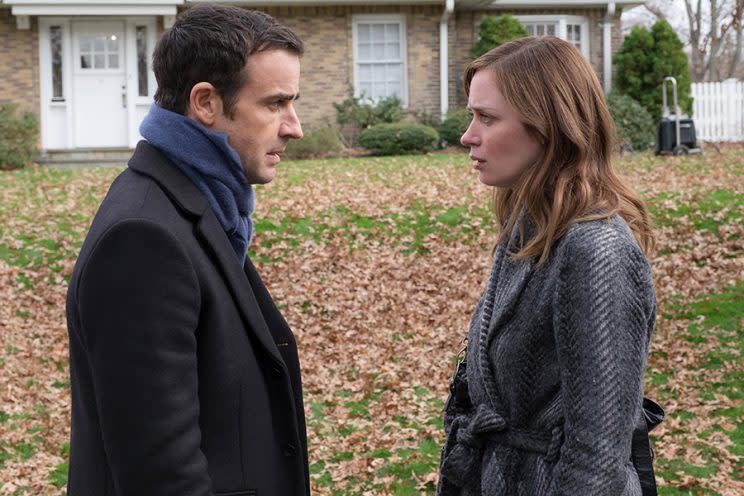Reviewers Can't Stop Pointing Out That 'The Girl on the Train' Has a 'Gone Girl' Problem

The Girl on the Train author Paula Hawkins has rejected comparisons between her book and Gillian Flynn’s novel Gone Girl, saying, “I don’t actually think they’re very similar books.” Which is true. But comparisons between the films are hard to avoid, because prestige psychological thrillers with unreliable female narrators just don’t come along that often. That’s not to mention all the superficial resemblances: Both have “girl” in the title, both use first-person voiceovers, both star a versatile English actress (Emily Blunt and Rosamund Pike) opposite a darkly handsome American actor (Ben Affleck and Justin Theroux). But while Gone Girl was directed by David Fincher, who’s been turning out excellent psychological thrillers for 20 years (including another highly-anticipated literary adaptation, The Girl with the Dragon Tattoo), The Girl on the Train is The Help director Tate Taylor’s first stab at a challenging genre. How’d he do? Critics are divided, except on one point: Girl on the Train is no Gone Girl. Here’s a round-up of the references to Fincher’s film in the reviews.
“There’s no doubt that Tate Taylor, the director of the film version of Hawkins’ novel, will also object to having his work held up next to David Fincher’s cinematic take on Gone Girl, as the juxtaposition will certainly not be to his benefit.” — The Hollywood Reporter
“Imagine if Gone Girl had been developed as a toothless network television pilot — if it had been stripped of its subversive approach to gender dynamics, bludgeoned free of its sadistic gallows humor and shot like a very special episode of NCIS: Suburbia… Imagine instead that it had been directed by the guy who made The Help.” — Indiewire
“Director Tate Taylor doesn’t bring the kind of stylistic dazzle that David Fincher, his fellow helmer in literary It Girl depravity, lavished on Dragon Tattoo and Gone Girl.” — Entertainment Weekly
“Emily Blunt does her considerable best with this exasperating and plaintive role…But this part doesn’t give her any scope for recovery, for the all-important mastery and survival: she just always looks under the weather. This doesn’t give her half the juice and outrageous fun that Rosamund Pike had from Gone Girl.” — The Guardian
“When you’ve been spoiled by the dark, meticulous David Fincher lending his artistry to paperback potboilers with Girl in the title (one with a Dragon Tattoo, one Gone) — even when they’re not his best work — Taylor’s flat commercial instincts make for diminishing returns.” — The Wrap
“The character analysis in both the book and film is far less interesting than it was in Gone Girl, a book with which Ms. Hawkins’s has been repeatedly compared. The creation of unpleasant female leads in both books is arguably a defiant feminist act but, put simply, Gone Girl did it better.” — The Economist
Watch a trailer for ‘The Girl on the Train:’
Save

